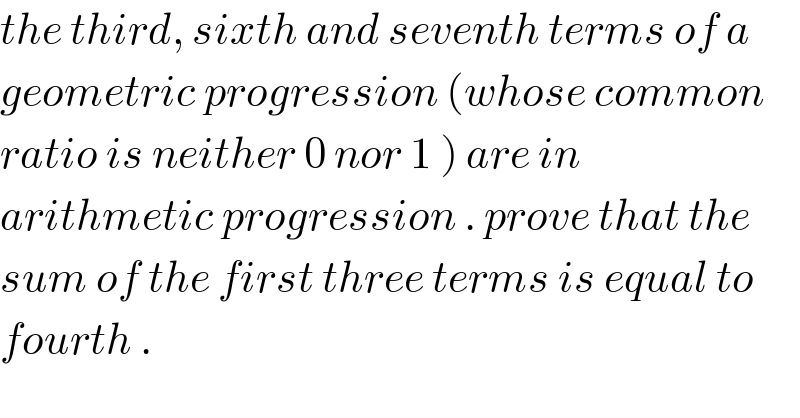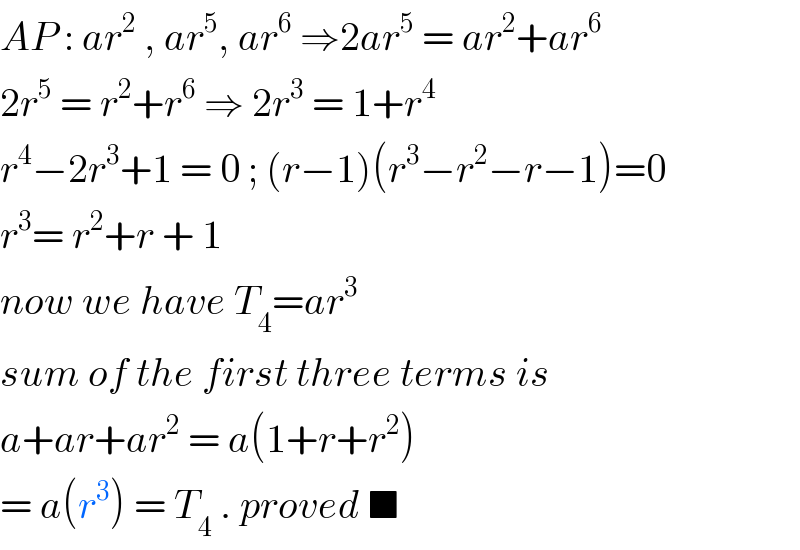the-third-sixth-and-seventh-terms-of-a-geometric-progression-whose-common-ratio-is-neither-0-nor-1-are-in-arithmetic-progression-prove-that-the-sum-of-the-first-three-terms-is-equal-to-fourth-
Question Number 103780 by bobhans last updated on 17/Jul/20
Answered by bemath last updated on 17/Jul/20



